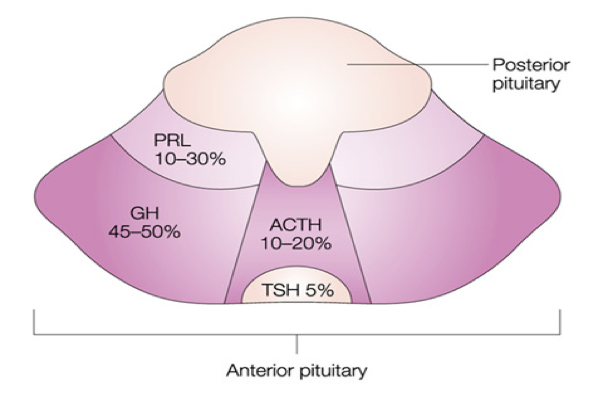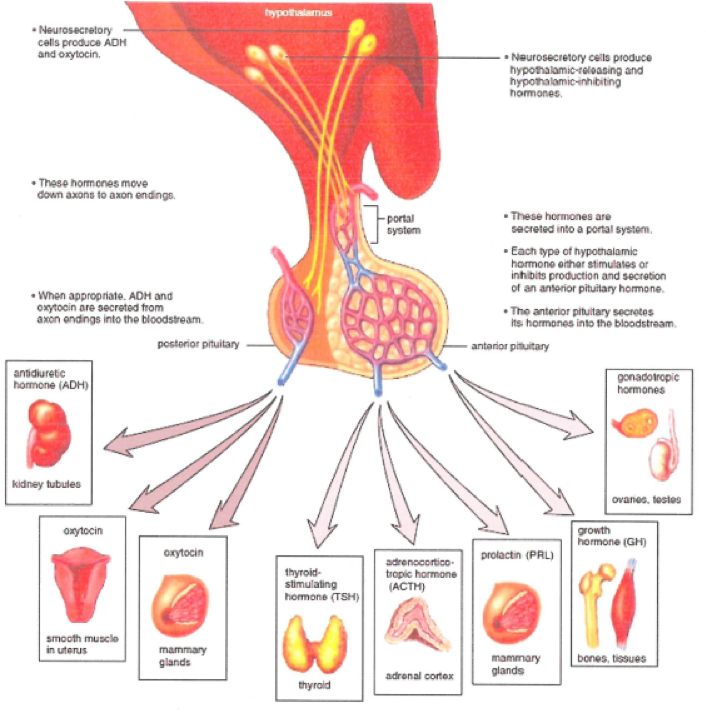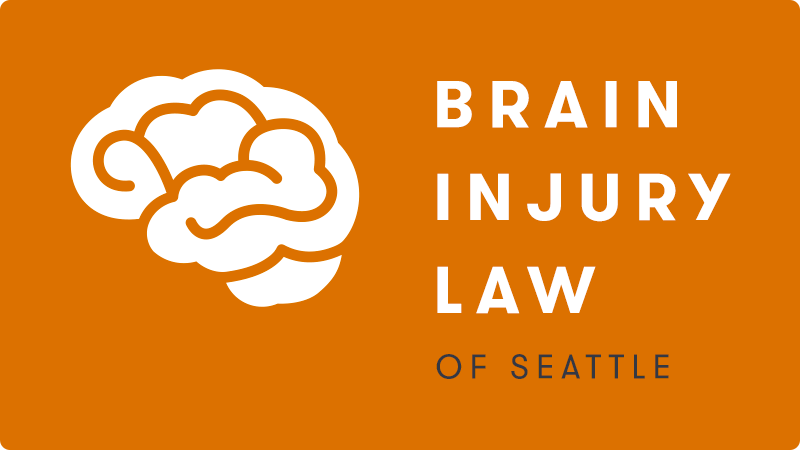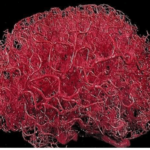A pituitary gland injury sustained from a traumatic brain injury (TBI) can cause serious repercussions for the victim of a brain injury. However, identifying whether or not damage to the pituitary has been sustained due to a brain injury is not a simple task. To determine whether or not someone has sustained a pituitary injury, one of several different tests must be performed.
Page Contents
CONFIRMING A PITUITARY INJURY
Certain parts of the pituitary are more susceptible to injury than other parts. The reason for this is straightforward, as demonstrated by the image below:

If an endocrinologist suspects the pituitary stalk is damaged, and blood flow or innervation to the pituitary is interrupted, the first question they will have to ask is, “What part of the pituitary has been damaged?” The easiest and most objective means of doing this is through a blood test that checks the hormone levels. If a given hormone level is well below the acceptable standard, this is a strong sign that the pituitary has been damaged.
An important way of seeing the sections of the pituitary that produce certain essential hormones is illustrated through the image below. The pituitary is called the master gland for good reason. It is the catalyst for hormonal signals from the brain to the rest of the body. When an endocrinologist suspects damage to the pituitary from a TBI, they start with the aforementioned blood test.

TESTING THE PITUITARY CAPACITY
Basal hormone levels are generally considered to provide reasonably reliable indices of pituitary abnormalities, but there are two exceptions: growth hormone deficiency and secondary adrenal insufficiency.
Insulin Tolerance Test (ITT)
The insulin tolerance test (ITT) has long been the gold standard for testing the pituitary capacity for growth hormone and ACTH secretion. However, the ITT is generally contraindicated after TBI, it is unpleasant for patients, requires intensive medical supervision, and because of that, it’s expensive.
Glucagon Stimulation Test (GST)
Another widely accepted provocative test that stimulates both ACTH and growth hormone responses, and is safer and more easily tolerated than the ITT, is the glucagon stimulation test (GST). This test is far more widely administered in the US than the ITT, and equally effective in confirming a pituitary injury.
The premise of the GST is simple. By placing the patient into a hypoglycemic state, a healthy pituitary will receive a message from the brain to send a corresponding hormonal signal to the pancreas to produce insulin to compensate for the hypoglycemia. If the pituitary is injured, particularly the anterior pituitary, the hormonal signal will not be sent by the pituitary, thus objectively confirming the damage to the pituitary stalk from the TBI. This test is important when another susceptible area of the pituitary is damaged in men – for example, the section that mediates the secretion of testosterone.
TESTOSTERONE LEVELS CAN DECREASE DUE TO PITUITARY INJURY
In a case our office handled, a plaintiff was hit while riding his bicycle, fell, and hit is head on the pavement. His pituitary stalk was damaged, and resulting damage to the anterior pituitary occurred. This client had exceedingly low testosterone levels and growth hormone levels, and had gone from being a gregarious, outgoing business owner to a socially withdrawn person who was fatigued all the time. He did not have many of the usual cognitive deficits typically seen in a normal MTBI.
For this reason, his TBI was largely overlooked for several months until he was seen by an endocrinologist who did appropriate blood testing. His blood testing proved he was very low on testosterone. He was then was given the GST testing and it proved that his pituitary was not sending the proper hormonal signals to the pancreas. The endocrinologist was then able to objectively conclude that he had sustained anterior pituitary damage by virtue of the lack of gonadotropic hormones being produced. (See image above)
Without testosterone, his energy level fell off the table, he became moody and withdrawn. Worst of all, he became functionally sterile because he could not produce his own testosterone level, resulting in essentially a zero sperm count. For a man in his early twenties who wanted a family, this is a devastating injury.
For this man and others who have growth hormone deficiencies as a result of a pituitary injury, there can also be significant side effects. For example, with the pediatric population, growth issues can result if growth hormone levels are altered. A very common feature of pituitary damage cases is low growth hormone, which results in many of the same behavioral and energy changes noted in the case example above.
LEARN MORE ABOUT PITUITARY GLAND INJURIES
If you or someone you know has recently suffered a brain injury, they may be suffering from pituitary damage. At Brain Injury Law of Seattle, we believe in educating those involved in the brain injury community, so that less people will slip through the medical system with unrecognized pituitary injuries and will get the treatment they need to once again feel like they did before their brain injury.
Learn more about traumatic brain injury symptoms and common causes of pituitary gland injuries.
Related Articles
Road Rash Scar
Motorcycle Road Rash Treatment
Second Opinion Lawyer
Head Injury Symptoms






